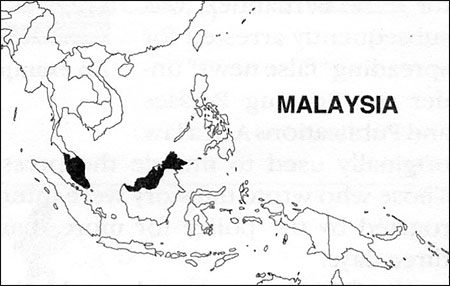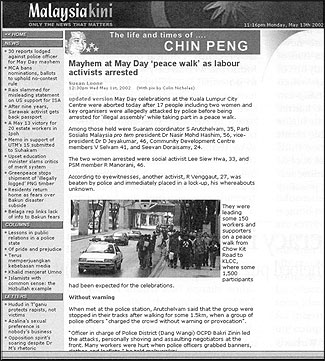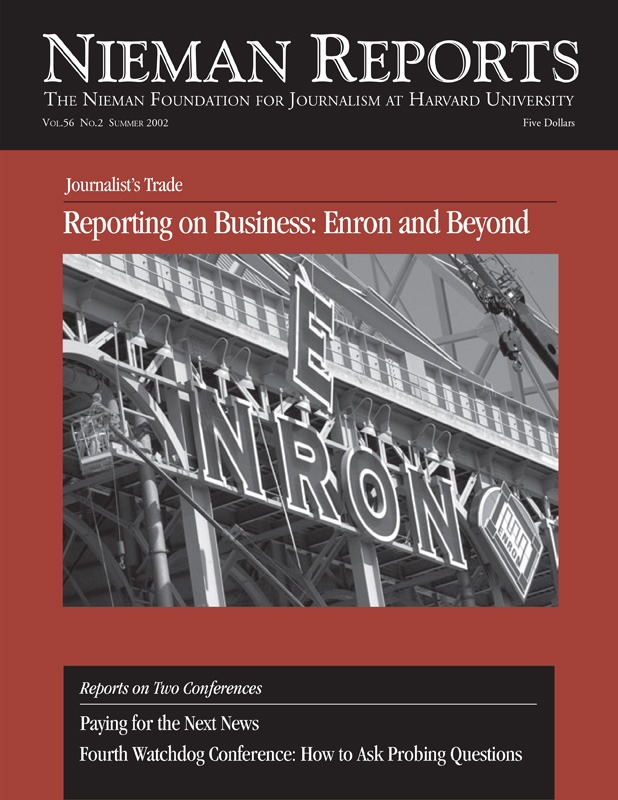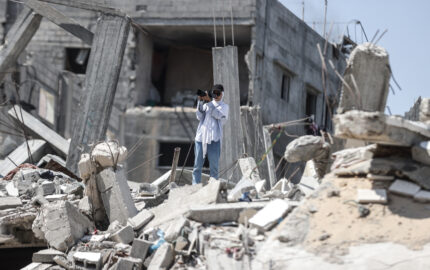
Malaysia is a democracy. We have freedom of speech, but no freedom after speech. There is freedom of movement, but no freedom of assembly. We have a plethora of publications—about a dozen or so newspapers in four different languages—but we don’t have a free press.
An example of an article on Malaysiakini.
Clearly, the government had a complete monopoly on the distribution of information until the emergence of the Internet. But while this technology RELATED WEB LINK
Malaysiakini
- malaysiakini.comhas enabled us to finally break through the government’s barriers, we are not near breaking its monopoly on power. The only advantage we have as online journalists over the traditional media in Malaysia is that our online publication Malaysiakini does not need to apply for a publication license. Indeed, we still must deal with many other restrictive laws that keep the traditional media in check. And the number of laws that directly and indirectly impinge on press freedoms in Malaysia is not five, nor 10, but 35.
For example, under the Official Secrets Act (OSA), almost all government documents can be labeled “State Secret” and thus not be eligible for release to the public. The OSA effectively inhibits civil servants from giving information, including those not strictly categorized as secret, for fear of retribution or demotion or, worse still, out of fear of being punished with a mandatory jail sentence. In addition, there is the Internal Security Act, which allows detention without trial, and a number of journalists have been arrested under this draconian law. Its threat casts an ominous shadow on the work done by all journalists.
But the most intrusive of all laws, as far as the journalists are concerned, is the Printing Presses and Publications Act. It provides the government the right to suspend or revoke printing and publishing permits. And its decision is not subject to review and cannot be challenged in court. The act also keeps the press on a short leash by requiring annual applications for all printing and publishing permits. In 1987, the licenses of three newspapers were revoked under this law in a sweeping crackdown on political dissent. The law also allows the government to fine or jail writers, editors, printers and publishers for spreading “false news.” Recently, a number of anti-government publications ran afoul of the law. The independent weekly Eksklusif and pro-reform monthly magazines Detik and Al-Wasilah were banned, while the organ of opposition Islamic Party, Harakah, was punished with a reduction in its frequency from eight to two issues a month.
Given such a hostile environment, media organizations in Malaysia are, not surprisingly, obsessed with self-censorship. My personal experience, as part of an investigative team for The Sun, an English-language daily, offers an illustration of this. In 1995, working with two colleagues, I helped unearth the deaths of 59 detainees, mostly Bangladeshis, in an illegal immigration detention camp. They died of beriberi (a symptom of malnutrition) and typhoid, diseases that are easily preventable. We wrote that this was a case of criminal neglect on the part of the police who ran the camp. The story was spiked hours before it went to print.
When it became known that the paper was not going to run the story, the reporting team decided to hand the information over to Tenaganita, a non-governmental organization that supports migrant workers. It wasn’t until Tenaganita exposed the deaths at a press conference—and these deaths were confirmed by the government—that the newspaper had the courage to run the story, but not without four revisions.
That was not the end of the story. The whistle blower, Tenaganita director Irene Fernández, was subsequently arrested for spreading “false news” under the Printing Presses and Publications Act, a law originally used to muzzle the press. Those who wrote the story were interrogated by the police for more than three days.
All of this helps to explain why the only democratic space left in Malaysia is cyberspace. Malaysiakini went live two years ago and even today we are still very much of a cowboy outfit. Despite this, we have 100,000 visitors daily, which put us in the same league as major newspapers in this country.
Our success is due to three key reasons:
- Government policy: To promote the Multimedia Super Corridor, Malaysia’s own Silicon Valley, the government has pledged not to censor the Internet. To its credit, the government has kept very much to its promise.
- Rise in political conscience: During the past few years, a growing number of Malaysians have developed a keen interest in democracy, human rights, good governance, and independence of the judiciary.
- The loss of credibility among the traditional media: Due to press self-censorship, readers are increasingly driven to the Internet in search of alternative sources of news.
There is a fourth reason: There are journalists who are willing to draw a line in the sand and tell the government: “This far, no further.”
The profile of Malaysiakini’s readership is telling. Visitors who are younger than 18 are almost negligible, 0.02 percent. Teenagers are definitely not our market. Between 18-25, readership is eight percent, so we are not reaching college students, either. Half of our readers are between the ages of 26 and 40, and the majority of our readers are working professionals. But consider this. Those who are 40 years old or older account for 46 percent of our readers. These are readers who are already in top management posts, who feel that they are not getting what they want from the highly censored traditional media. Many go online specifically to visit Malaysiakini. We are indeed introducing a new generation to the Internet.
We, too, have our share of problems. Our Web site is apparently a huge magnet for hackers. We’ve lost count of the number of times that Malaysiakini has been hacked. I’m not going to speculate where these attacks come from, but the government last year vowed to launch “missiles” against errant Web sites. Suffice to say, protecting Malaysiakini from hackers is a major preoccupation for our small technology team.
Malaysiakini journalists do not have official press tags, which are issued by the government to all working journalists. Our application for these passes was rejected last year. Consequently, we are banned from government functions and, more recently, we were banned from reporting on the Parliament. However, the ban is not strictly enforced, and we continue to challenge it.
And, of course, we face attacks from the government. Issues were made regarding our sources of finance. Pressures have been put on our advertising clients. And we were called “traitors” by Prime Minister Mahathir Mohamad. We expect worse to come. There has been discussion in government’s circles on amending the printing laws to require licensing for news Web sites such as Malaysiakini.
Still, the Internet has helped put press freedom on the front burner. It spurred mainstream journalists, for the first time in recent years, to call for an end to the restrictive printing law. Three years ago, they handed a petition—signed by more than 1,000 journalists—to the government expressing concern about “accusations that local journalists are merely a part of the government’s propaganda machine and not professionals performing their duties to the best of their ability.” The petition said: “We further note that this perception, rightly or wrongly, has resulted in more and more people turning to alternative sources of information, namely, the Internet, foreign news reports, as well as opposition party publications….”
To replace the printing law, the journalists proposed a press council to self-regulate the media. In response, the government acceded to the proposal to set up a press council, but not to the demand to repeal the printing law. To this, we strongly object: A press council cannot operate in an environment where restrictive press laws remain and news organizations are owned by political parties or government cronies.
At the prestigious Malaysian Press Institute’s Journalism Awards six years ago, the Prime Minister told the some 700 journalists who attended the gala event to behave themselves. He said Malaysians should not be unduly ashamed of laws that curtail their freedom of expression. “Are we ashamed that there is no freedom of the press in this country?” he asked. “Do we, forever, have to apologize to the rest of the world for our laws? Could it be, perhaps, that we are right and they are wrong?” Later that night he presented a number of awards to journalists picked by a panel of veteran journalists for their outstanding news reports.
One of the winners was “Shattered Dreams,” the report about the deaths of immigrants in the detention camps, a story originally considered unfit for publication. But, despite the irony of the award, Malaysian journalists have yet to prove Mahathir wrong.
Steven Gan is cofounder and editor of Malaysia’s first and only independent news source, Malaysiakini. Since it went live in November 1999, Malaysiakini has become one of the top news Web sites in the country. In 2000, Gan received the Committee to Protect Journalists International Press Freedom Award.



